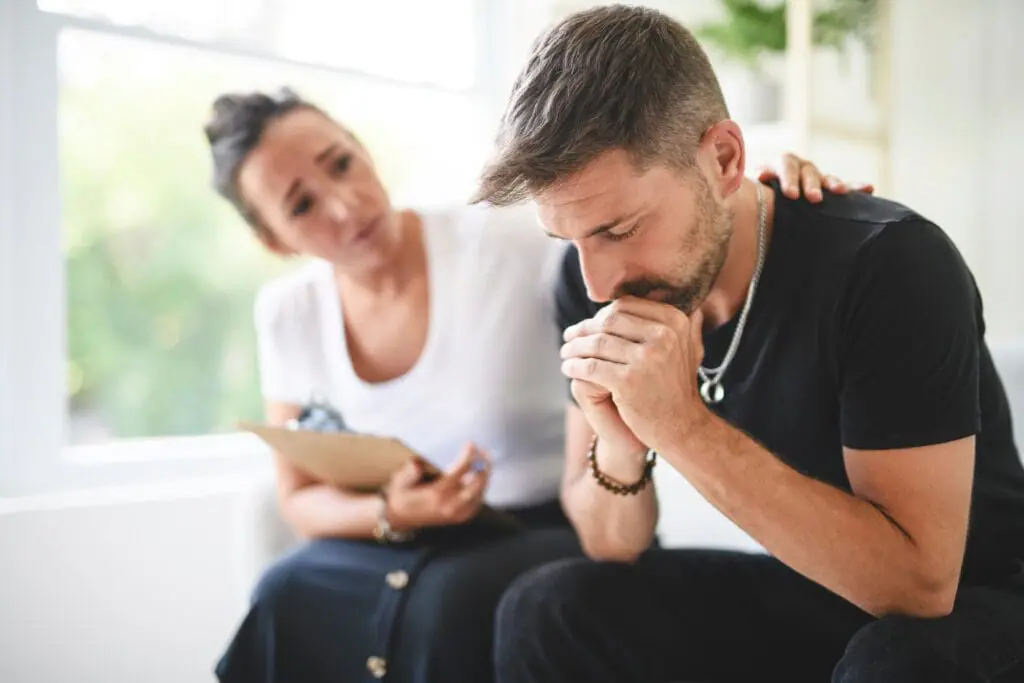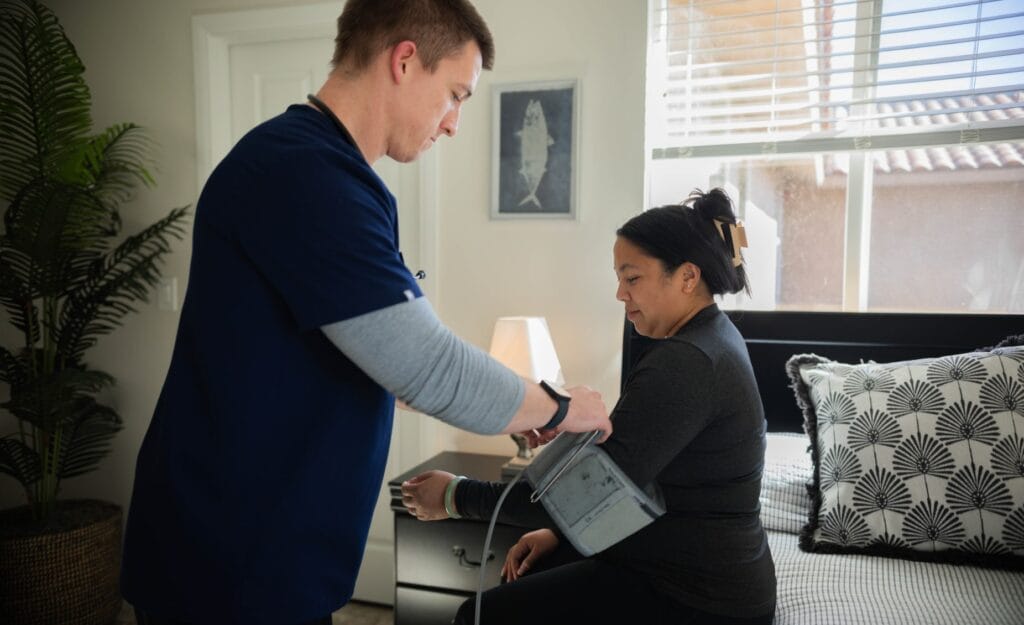Naloxone Treatment
Naloxone treatment, also sold under the brand name Narcan, is a lifesaving medication that can reverse an opioid overdose if used correctly. In contrast to other medications for opioid use disorder, naloxone administration is designed specifically for immediate crisis intervention.
Knowing how naloxone works and having it available could make a life-or-death difference for friends or loved ones struggling with an opioid use disorder.
The first step to understanding naloxone treatment is learning how this drug works as an opioid overdose medication. Naloxone uses different routes of administration, but the effect in a person who is overdosing is typically the same.
What is Naloxone?
Naloxone is an opioid overdose medication. Pharmacologically, it is known as a full opioid receptor antagonist. This means that naloxone medication will “kick out” any drugs on an opioid receptor and prevent them from attaching again.1
In practice, this means that a naloxone injection or naloxone nasal spray will reverse the effects of powerful opioids such as heroin, morphine, oxycodone, or even fentanyl.
Is Naloxone an Opioid?
Naloxone is not an opioid; instead, it is an opioid “blocker.” This medication cannot be abused and is not considered a controlled substance.
What is Naloxone Used for?
Naloxone treatment uses a powerful medication to reverse opioid overdose. If you see that somebody is experiencing the symptoms of an opioid overdose and have naloxone (Narcan) nearby, administering this medication can literally save their life.
Opioid Overdose Symptoms
The first step to naloxone opioid overdose treatment is recognizing the symptoms of an opioid overdose.2 Somebody who is experiencing an opioid overdose may show signs such as:
- Loss of consciousness
- Pinpoint pupils
- Face or lips turning blue
- Breathing that has completely stopped or slowed dramatically
- Unresponsiveness
- Cold, clammy skin
- Gurgling sounds coming from the throat
When left untreated, an opioid overdose can quickly lead to death. Opioids are central nervous symptom depressants, which means they can stop the body from breathing and dramatically slow the heart rate.
If you recognize that somebody is overdosing, the first thing you should do is call 911. These operators can guide you through administering naloxone, send paramedics, and help you treat the person overdosing.
Side Effects of Naloxone Treatment
Naloxone treatment, when delivered correctly, will not only wake the person from an opioid overdose but send them instantly into severe opioid withdrawal. This includes naloxone side effects such as:3
- Fever
- Body aches
- Sweating
- Runny nose
- Sneezing
- Restlessness
- Anxiety
- Diarrhea
Naloxone side effects closely parallel severe flu symptoms and are pointedly the opposite effects of an opioid overdose.
Other Information You Should Know About Naloxone Treatment
Lastly, you should know a few other things about naloxone (Narcan). The first is that there is no upper limit to naloxone, which means that you can administer this medication repeatedly without fearing that you will cause any damage to the person receiving the medication.
The second is that you can receive a naloxone prescription if you use opioids, illicit or prescribed. Finally, many states let you buy naloxone at a pharmacy, and several have free naloxone programs, usually alongside needle exchange services.4
How is Naloxone Used?
There are two forms of naloxone medication used as an opioid overdose treatment: naloxone injections and naloxone nasal spray. Knowing how to use these treatments before an overdose occurs is essential to ensure you can help somebody in need.
Injectable Naloxone
The first form of naloxone (Narcan) widely available is the injectable version. Narcan injections either come with a needle and a vial or a prefilled syringe.
Naloxone in a Vial
If your naloxone medication comes in a vial, remove the cap from the needle, insert the needle into the vial, and fill the syringe. Then, take the needle and drive it directly into the muscle of the person overdosing, like a flu shot. You can deliver the medication into the shoulder or top of the thigh, and it is okay to go through clothing.
Naloxone in a Syringe
If you have a prefilled syringe, remove the cap and follow the same instructions as above, skipping filling from the vial. Make sure that your syringe is designed for injection — some nasal sprays come in a package that looks like a syringe, but they are designed to be sprayed into the nostrils.
If the person does not snap out of their overdose within two to three minutes, administer a second shot. Continue this every two to three minutes until paramedics arrive or you run out of naloxone.
Naloxone Nasal Spray
The naloxone nasal spray is the other common and effective method of naloxone treatment. To administer the nasal spray, remove the cap from the spray, place it into the person who is overdosing’s nostrils, and push the plunger. The medication should spray into their nostrils and quickly reach their bloodstream through the inside of the nose.
Like with the injectable naloxone, you should administer a second dose two to three minutes after the first if the person is not responding and repeat until paramedics arrive.
Treatment for Opioid Addiction and Overdose at San Diego Detox
While there is no such thing as a naloxone treatment program, treating an opioid use disorder is an effective way of helping people break free from their addiction. At San Diego Detox, our team is dedicated to helping people overcome opioid use disorders, and we are trained in using naloxone in the case of overdose.
Coming to our treatment facility can help show you that recovery is possible and can also be enjoyable and sustainable. We will help you through the detoxification process in the safest and most comfortable manner possible.
In addition to the detoxification process, our program emphasizes the need for continuing care after detox. Aftercare programs are a key indicator of long-term abstinence and provide lasting support to those who need it most, and we will guide you towards the best aftercare programs. When you are ready to start treatment, reach out to the team at San Diego Detox today, and start the road to recovery.
Resources
https://www.niaaa.nih.gov/alcohols-effects-health/overview-alcohol-consumption/what-standard-drink
https://www.drugfreeworld.org/drugfacts/alcohol/short-term-long-term-effects.html
https://www.ncbi.nlm.nih.gov/pmc/articles/PMC2913110/
https://www.webmd.com/mental-health/addiction/understanding-alcohol-abuse-symptoms






